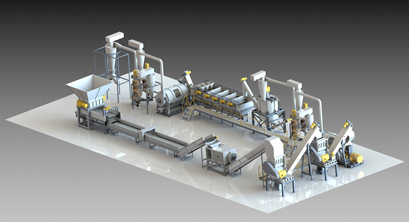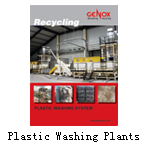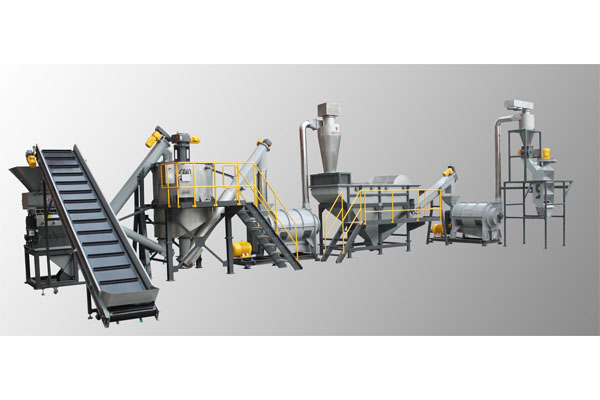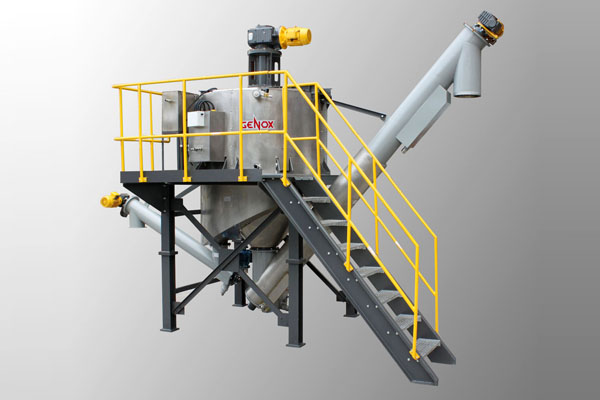- Your location > Home > Plastic washing plants > PET bottles
Recycling Plants
PET Bottles Washing Plants
• Disc Screener – removes stones, heavies and loose caps
• Sorting Belt (Optional) – manual sorting of bottles by type and colour
• Metal Detector – detects metal contamination that may remain in the bottles
• Pre-washer – removes some of the contamination i.e remnant liquids
• Granulator 1 with Force Feeding Device – wet grinding for size reduction and washing
• Screw Washer 1 – washing and transportation of material
• Granulator 2 – wet grinding for size reduction and washing
• Screw washer 2 – washing and transportation of material
• Centrifugal Dryer – washing and drying of flakes
• Zig-Zag Classifier – removes some of the labels and fines
• Hot Washing Tank – hot washing with alkaline (caustic) soda to remove glue and oil
• Sink-Float Separation Tank – removes caps and labels that float, and helps wash the PET flakes that sink
• Centrifugal Dryer – mechanical dewatering of the PET flakes
• Zig-Zag Classifier – separation of the remaining labels and fines
• Big-Bag Station
• Control panel
A typical PET bottle washing plant would be configured as shown below.

The correct combination and sizing of the above listed equipment will provide a reliable, efficient PET bottle recycling system that will produce a high quality flake ideal for sale, or for converting in a fiber processing system or pelletizing equipment.
Testing
Prior to delivery from our facility, all plastic washing plants are set up and tested under "real world" conditions to ensure the plant capacity and quality of the finished product are guaranteed. Customers are welcomed and encouraged to attend these trials to see their plant in operation, receive training on the operation and maintenance of their system, and to see similar equipment in build.




